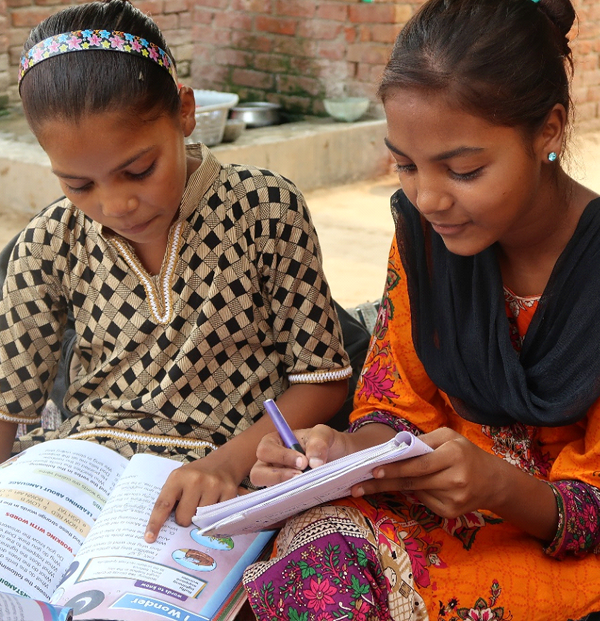Naina was just 13 years old when Voice for Justice first met her. She lived in extremely poor conditions with her five sisters in a small two-bedroom stone house. They shared their plot with a few animals, such as a goat and a cow, and prepared meals by building a fire outside, cooking everything in a single pot. Her father made a modest living by cycling around the neighborhood, selling fruit door-to-door. They had only one light in each room and faced daily power cuts. The house lacked both heating and cooling, leaving the family vulnerable to the outdoor conditions.
Despite their determination, Naina’s parents couldn’t afford to send their daughters to school. Although public schooling in Pakistan is technically free, they still had to pay administrative fees, as well as cover the costs of school shoes, uniforms, books, and bags. Additionally, after-school private tutoring—often essential for success—was beyond their reach. In Pakistan, with high rates of out-of-school children and a system where even educated people struggle to find a suitable job, many children leave school at a young age to take on menial jobs to support their families. Naina was on the same path, even though she longed for an education. Her parents had to explain that they simply couldn’t afford it.



